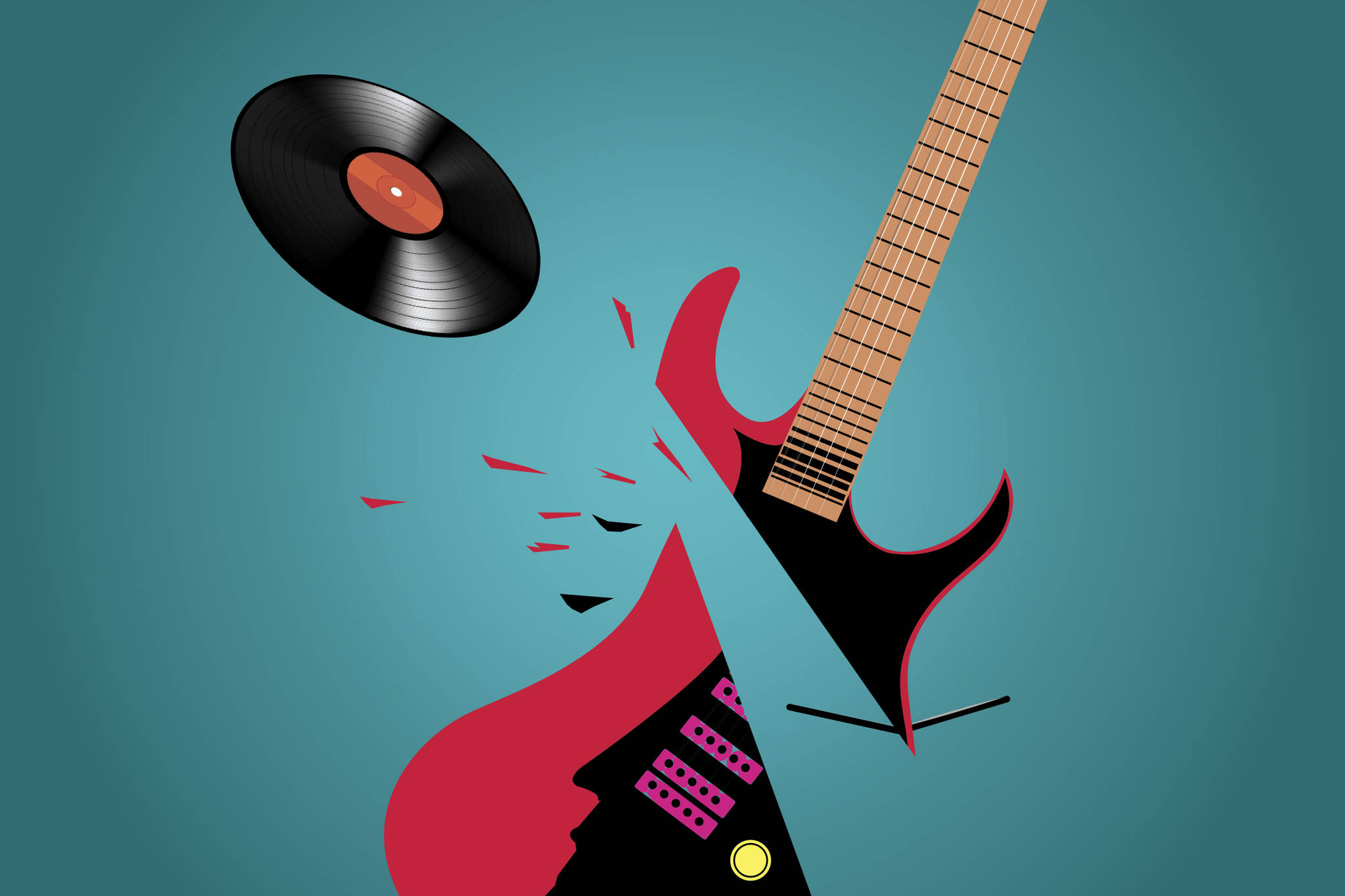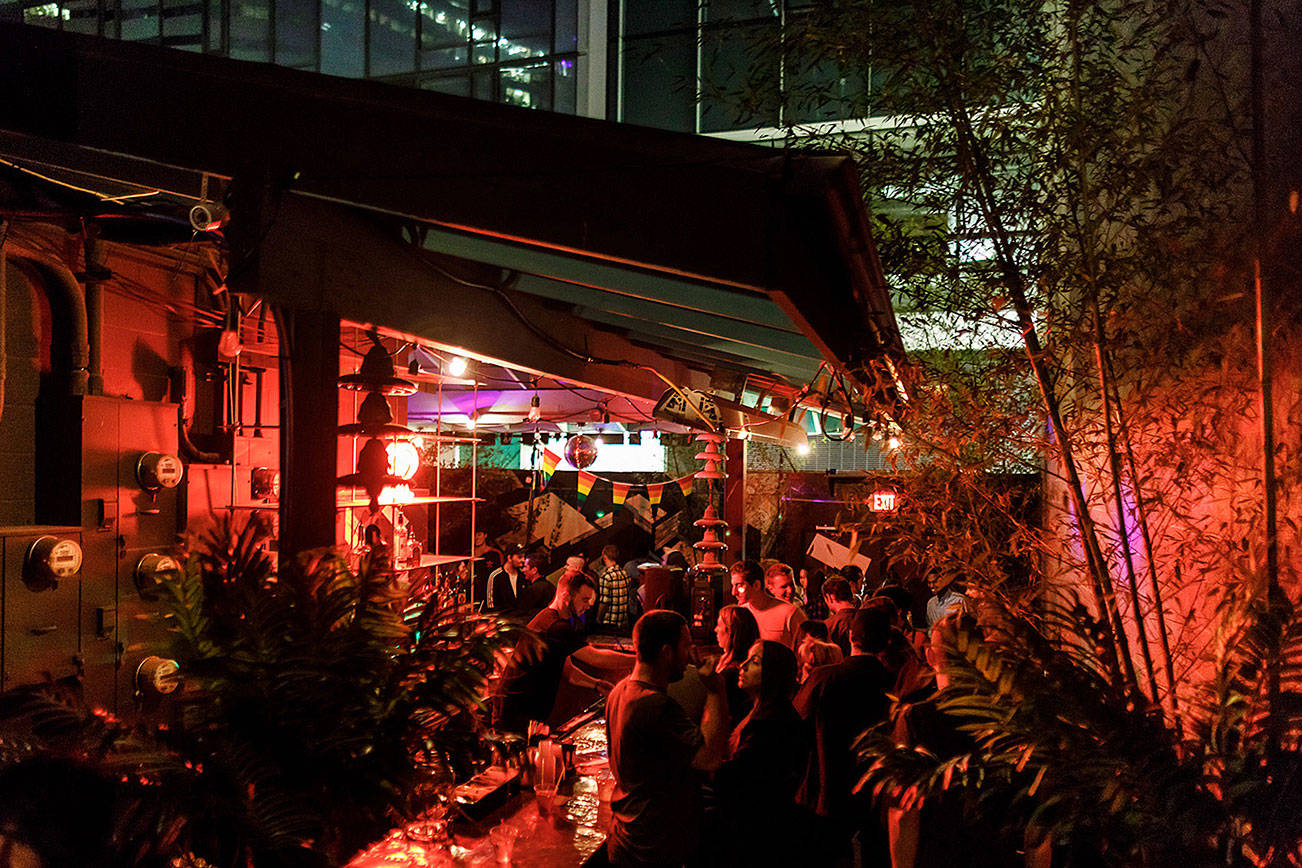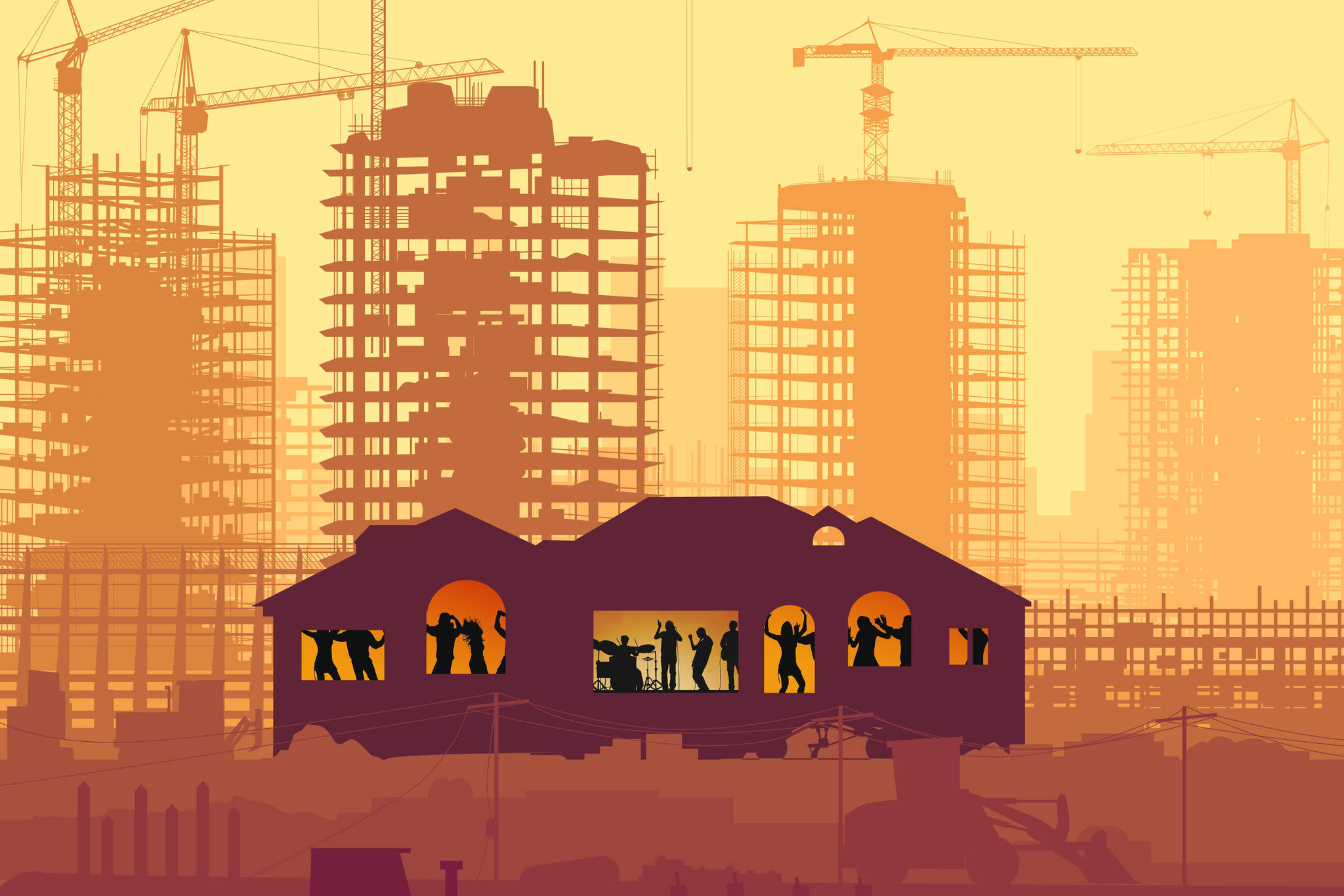The state of Seattle’s nightlife is most easily observable on telephone poles. Shifting and changing like leaves, the posters that crowd the poles offer the most comprehensive at-a-glance view of the events currently on offer across the city, but a new species of poster has begun blooming. Where once there hung notices for punk shows and touring bands stopping by the Neptune, now phrases like “Famous Fridays,” “Candi Pop,” and “SNAP!” have settled into a comfortable permanence. In venues across the city, a new player has risen to prominence—the DJ night.
DJ and dance nights have a long history at traditional nightclubs, but more and more frequently they are being adopted as standard practice for live-music venues. Those that have traditionally functioned as rock clubs have begun exclusively booking DJs and dance parties on weekend nights, traditionally prime slots for local bands and musicians. In Seattle’s current economic landscape, in which musicians must already contend with rising costs of living and a housing-affordability crisis, some say that this trend further impedes their ability to succeed financially. But venue operators insist that a host of factors have made weekend DJ nights a necessary component of their business model.
“No club in this region can survive without doing this. It’s the nature of the change in culture that’s happened in the last five years,” says Nathan Chambers, the talent buyer at Chop Suey. “Everyone knows that the culture in our neighborhood and the culture in Seattle is changing. There’s no fighting it. It is what it is. You either adapt to it or go out of business.” Hunter Motto, a talent buyer at The Crocodile, agrees: “It’s definitely a thing.”
The operators I spoke to identified a consistent set of factors as the drivers of this trend. “If the question is ‘Why are people doing this?’,” says Motto, “there are a few parts to the answer.” The most prominent, he says, are the recent demographic shifts in Seattle nightlife. “The community is changing,” he tells me. “There’s a community of people who aren’t as interested in live music as they are in dance nights.”
Chambers agrees. “I’ve lived in Seattle for 10 years now, and this Capitol Hill versus the Capitol Hill of four years ago is a huge shift.We make more money, but it’s also about people listening to music differently on the weekends now. It’s a culture of ‘What’s next?’, and sitting down for a whole set isn’t what people want to be doing. That attention span isn’t there.”
Evan Johnson, who books shows at Neumos and Barboza, also points to the rising profile of Capitol Hill as a party destination as one reason people may eschew live music in favor of a DJ night. “You have people driving in [to Capitol Hill] from wherever, and they want to make the most of it,” he says. “So they’re not going to go see a band they don’t know. They want to be with their friends, dancing in the club to music they love.”
Many people I spoke to also identified a more obvious reason for the rise of DJ nights—on the whole, they’re both more lucrative and cheaper to produce than a traditional concert. “In terms of the mechanics, it’s low-risk,” says Motto. “Why would I spend $10,000 on an artist and take a ton of risk and then, y’know, ‘Oh, whoops, we made a mistake and nobody showed up?’ In our business, in the small, independent venue world, we don’t have the safety net for risk.”
A traditional live-music show typically involves multiple bands, vanloads of gear and instruments, and crew members. This translates to a much higher price tag than that attached to a DJ, who might only bring a laptop and turntables. “I obviously love bands, but a band is just so much more expensive,” says Chambers. “For a band, you have to put so much money down up front, versus a DJ night where you’re paying one person to show up and you know there’s a huge upside.” According to Chambers, DJ nights on weekends draw “usually double the amount” of people who come out to rock shows in those same slots.
Johnson also points out that many dance nights are longer than a traditional show, driving more business to the bar. “When you do a typical three-band bill, say you have doors at eight and it’s over by midnight,” he tells me. “OK, well now you have two hours left over at the end where you’re not making any money at the bar because the show’s done. You can still make money that way. But when we do these DJ nights, we do them nine to close. So that’s just more time.”
Venue employees also unanimously identified increased alcohol sales as a major advantage of these nights. “Any show at a venue, you’re making your money at the bar,” says Chambers. “That’s your primary source of income. I’ve been a bartender in venues forever, and you always get those big hits of people rushing the bar between sets. On a DJ night, though, there aren’t sets, and you’re getting that rush between songs rather than in 15-minute intervals.” Or as Johnson puts it, “When there’s a DJ, it’s ‘drink, go dance, come grab another drink.’ ”
Perhaps the most immediate factor driving this trend is that many local venues are independently owned, and therefore at the mercy of the market for survival. “The venues that we’re talking about aren’t commercially owned,” Motto tells me. “We’re all independent venues that are trying to pay our bills and pay the rent that’s going up. With everything that’s happening in this city, we need to get creative and we need to get smart. This is one of the ways we’re doing it.” Johnson also acknowledges that DJ nights have become an economic reality for many venues. “ If you look at [The Showbox’s] calendar, they can make it through the month with eight or 10 shows,” he says “but that just wouldn’t fly at Neumos. We couldn’t live on that model.” Motto also points out that many independent venues are owned and operated by people who have spent considerable time and resources trying to maintain a small business. “Every independent venue that you see? Somebody’s kids and mortgage and life have been sunk into it, and it has to be run in such a way that all of that can continue,” he says.
Naturally, this new model has raised some consternation among local musicians. “There’s definitely some pressure, locally, on those weekend dates that everybody wants if local venues aren’t going to make a space for those events. I think it would be a big bummer if this trend became so dominant that it didn’t allow space for local bands to have a draw,” says Adam Prairie, booker and talent buyer for the Sunset Tavern and member of local band the Hoot Hoots. “ I grew up in this music community as a dude in a band. So my bias is towards booking bands.” Michael McKinney, a local DJ and lead singer of local band Spesh, echoes those sentiments, and even cites this growing trend as part of his motivation for booking DIY shows. “I took everything into my own hands this month and booked a show at Brain Freeze [a DIY venue] on a Friday,” he says. “That was born out of the frustration of there just being DJ nights on Friday and Saturdays now.”
Despite their dissatisfaction, the musicians I spoke with understood the economic reality facing venues. “I get it,” says McKinney. “Venues are one of the things that are getting hit hard by the whole tech-industry takeover.” Prairie is more trenchant: “It would be fundamentally worse for bands and musicians if venues ran themselves in such a way that they didn’t exist anymore.”
There is always, in these kinds of discussions, the danger of framing change as inherently sinister, but every single person I spoke with was quick to point out that many DJ nights around town are rich, thoughtfully curated musical experiences in their own right. “It’s hard to get too mad, because then you’re diminishing what a DJ does,” says Johnson. “That’s their art form, you know? A lot of people look at it as a money grab, but this is a community of people that want to enjoy music too, and it’s not like they’re not allowed.”
Gwen McKenzie, assistant talent buyer at the Crocodile and one of the operators of the popular traveling dance party Night Shift, also cites the formal malleability of DJ nights as one reason for their popularity. “What’s so fun is that there’s so many options for the format of DJ dance nights,” she says, “whereas there is kind of a set paradigm for a live show that a demographic already knows and expects to come see. There’s less of an entrenched idea of what these newer nights are going to be like, so there’s more possibility.”
For many communities, DJ nights also allude to a rich history of resistance and solidarity. Renee Jarreau Greene, who DJs as Reverend Dollars, often combines her activism and DJ practices, utilizing events and dance nights to create safe spaces for queer and trans people of color. “It’s very much part of a tradition,” she tells me. “It goes back to disco, and before that, places like the Paradise Garage in New York or the Warehouse in Chicago. The Music Box too. Those were black and brown gay clubs. A lot of the vocabulary we have as DJs was invented in those spaces. So it ain’t nothing new.”
Ultimately, market trends are determined by audiences, and this was the greatest takeaway in my discussions with every person I spoke to. Venues, and the bands who depend on them, can only continue to exist if they cater to the will of the market, and that will is the sum of individual consumption. “The one who controls everything is the consumer,” Motto tells me emphatically. “If you’re annoyed, if you want to see more rock shows, go buy tickets to rock shows.”
music@seattleweekly.com






